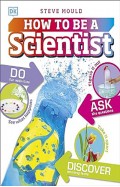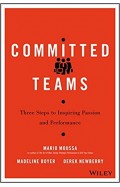- Home
- Categories
- Non Fiction
- Innovation and Technology
- Artificial Intelligence
- As If Human - Ethics and Artificial Intelligence
As If Human - Ethics and Artificial Intelligence
By: Nigel Shadbolt
-
Rs 8,545.50
- Rs 9,495.00
- 10%
You save Rs 949.50.
Due to constant currency fluctuation, prices are subject to change with or without notice.
“Elegant and erudite.”―John Thornhill, Financial Times
Intelligent machines present us every day with urgent ethical challenges. Is the facial recognition software used by an agency fair? When algorithms determine questions of justice, finance, health, and defense, are the decisions proportionate, equitable, transparent, and accountable? How do we harness this extraordinary technology to empower rather than oppress?
Despite increasingly sophisticated programming, artificial intelligences share none of our essential human characteristics―sentience, physical sensation, emotional responsiveness, versatile general intelligence. However, Nigel Shadbolt and Roger Hampson argue, if we assess AI decisions, products, and calls for action as if they came from a human being, we can avert a disastrous and amoral future. The authors go beyond the headlines about rampant robots to apply established moral principles in shaping our AI future. Their new framework constitutes a how-to for building a more ethical machine intelligence.
“Elegant and erudite.”―John Thornhill, Financial Times
Intelligent machines present us every day with urgent ethical challenges. Is the facial recognition software used by an agency fair? When algorithms determine questions of justice, finance, health, and defense, are the decisions proportionate, equitable, transparent, and accountable? How do we harness this extraordinary technology to empower rather than oppress?
Despite increasingly sophisticated programming, artificial intelligences share none of our essential human characteristics―sentience, physical sensation, emotional responsiveness, versatile general intelligence. However, Nigel Shadbolt and Roger Hampson argue, if we assess AI decisions, products, and calls for action as if they came from a human being, we can avert a disastrous and amoral future. The authors go beyond the headlines about rampant robots to apply established moral principles in shaping our AI future. Their new framework constitutes a how-to for building a more ethical machine intelligence.
As If Human - Ethics and Artificial Intelligence
By: Nigel Shadbolt
Rs 8,545.50 Rs 9,495.00 Ex Tax :Rs 8,545.50
Zubin Mehta: A Musical Journey (An Authorized Biography)
By: VOID - Bakhtiar K. Dadabhoy
Rs 892.50 Rs 1,050.00 Ex Tax :Rs 892.50
The Origins of Political Order From Prehuman Times to the French RevolutioN
By: Francis Fukuyama
Rs 4,045.50 Rs 4,495.00 Ex Tax :Rs 4,045.50
Manning Up: How the Rise of Women Has Turned Men into Boys
By: Kay Hymowitz
Rs 845.75 Rs 995.00 Ex Tax :Rs 845.75
The Obama Syndrome: Surrender At Home War Abroad
By: Tariq Ali
Rs 1,100.75 Rs 1,295.00 Ex Tax :Rs 1,100.75
The Quest For Meaning: Developing A Philosophy Of Pluralism
By: Tariq Ramadan
Rs 1,185.75 Rs 1,395.00 Ex Tax :Rs 1,185.75
No similar books from this author available at the moment.
Tarar's Fragile Times - The Work of Mustansar Hussain Tarar
By: Muhammad Safeer Awan
Rs 1,620.00 Rs 1,800.00 Ex Tax :Rs 1,620.00
Arriving Today: From Factory to Front Door -- Why Everything Has Changed About How and What We Buy
By: Christopher Mims
Rs 2,947.50 Rs 5,895.00 Ex Tax :Rs 2,947.50
Spelling Practice Pad 6-7 (Key Skills): 1 - (PB)
By: Kirsteen Robson
Rs 1,270.75 Rs 1,495.00 Ex Tax :Rs 1,270.75
Committed Teams: Three Steps to Inspiring Passion and Performance
By: Mario Moussa
Rs 3,820.75 Rs 4,495.00 Ex Tax :Rs 3,820.75
Our World in Numbers - How Big? How Small? How Many? How Fast?
By: DK
Rs 3,415.50 Rs 3,795.00 Ex Tax :Rs 3,415.50
Great By Choice: Uncertainty Chaos And Luck Why Some Thrive Despite Them All
By: Jim Collins
Rs 5,395.50 Rs 5,995.00 Ex Tax :Rs 5,395.50
Zubin Mehta: A Musical Journey (An Authorized Biography)
By: VOID - Bakhtiar K. Dadabhoy
Rs 892.50 Rs 1,050.00 Ex Tax :Rs 892.50
As If Human - Ethics and Artificial Intelligence
By: Nigel Shadbolt
Rs 8,545.50 Rs 9,495.00 Ex Tax :Rs 8,545.50














-120x187.jpg?q6)





-120x187.jpg?q6)
























:-1-(PB)-120x187.jpg?q6)


